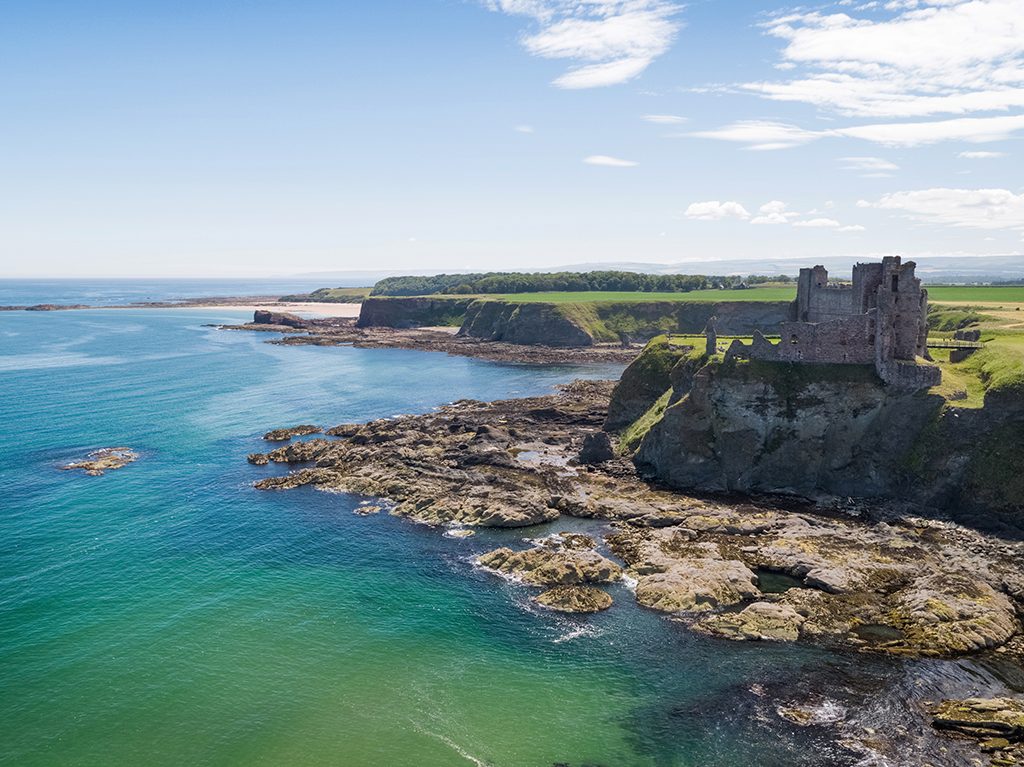The ‘Attenborough Effect’ has propelled the urgency of the plastic problem into the hearts and minds of so many people. Reportedly 53% of people use less plastic as a result of Blue Planet 2! We’ve certainly seen the effects here at HES.
We’ve been reducing plastic waste here for many years. However, Blue Planet 2 exposed the dangers of this type of pollution to a worldwide audience. Using plastic in any area of our business now comes under question by our staff, our members, and the public.
This new level of engagement has really accelerated the levels of plastic reduction in our organisation. Staff are actively making changes to the way they work. It might be by changing processes, working with suppliers to reduce plastic, or being more mindful of what materials they are purchasing.

Plastic waste has a negative impact in a number of ways – and we’re on a mission to reduce it!
To mark the release of David Attenborough’s new documentary on climate change, we’re sharing some of our plastic reduction stories collated over the past few years.
There’s still a long way to go to reduce the use here at HES, but we’re trying hard to reduce our environmental impact. We really want to ensure we’re both responsible consumers, and producers.
Polythene: a thing of the past!
Polythene is now a thing of the past for our magazine. Our members now receive their magazine wrapped in a certified home-compostable potato-starch wrap. With over 70,000 magazines each quarter, that’s a lot of polythene saved!
Top tip: Our mag wrappers can go in your compost heap, your garden bin, or can even line your food waste caddy!
Tackling disposable coffee cups
We recently removed disposable coffee cups, containers and cutlery from the Engine Shed, and at our HQ café in Edinburgh.
We’d been running campaigns in our head office for over 5 years to try and reduce the amount of disposable coffee cups our staff were using. We’d already made a staggering reduction of disposables from 76% in January 2015 to an all-time low of 10% in May 2017!
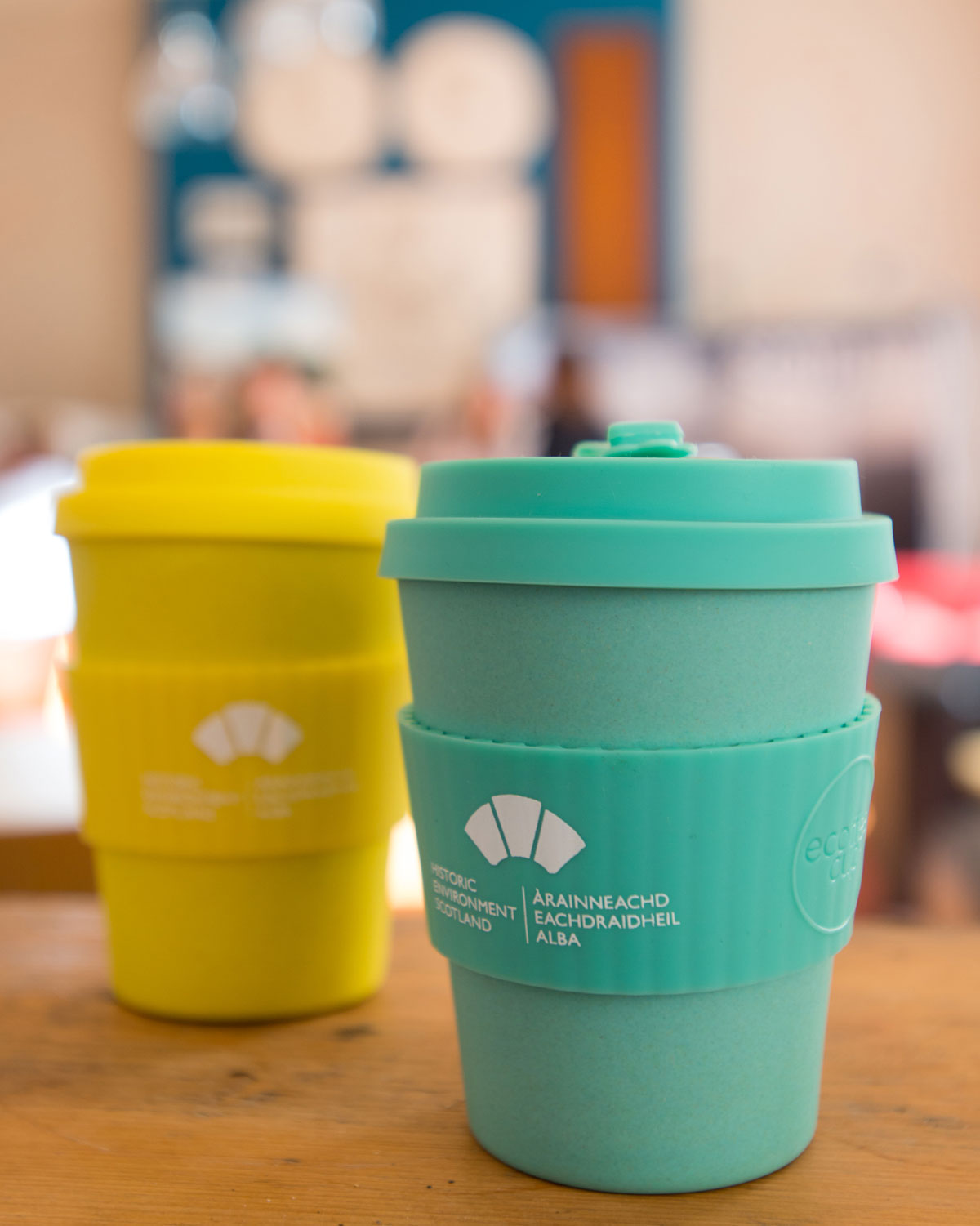
Grab yourself a reusable cup and help keep plastic waste to a minimum!
In November 2018 we were ready to remove disposables entirely from the café. With our coffee-loving staff consuming over 25,000 hot drinks a year, we’ve saved a great deal of this hard-to-recycle waste going to landfill or incinerators.
Next steps are to think about how we roll this out to our visitor cafes. So far we’ve moved to compostable coffee cups for our coffee machines, where we use over 20,000 cups a year, we also sell reusable cups in our shops.
Sachet away at Skara Brae
Our café in Skara Brae swapped out single-use sauce ramekins with some beautiful refillable ceramic dishes made by a local potter.
Small pieces of plastic like this can become litter really easily when dropped or blown away. Removing them nullifies this risk and also reduces the amount of hard-to-recycle waste we produce.
We estimate that purchasing these ceramic dishes stopped us from going through around 3,000 single-use ramekins last season. We also keep our delicious cakes and bakes polythene-free.
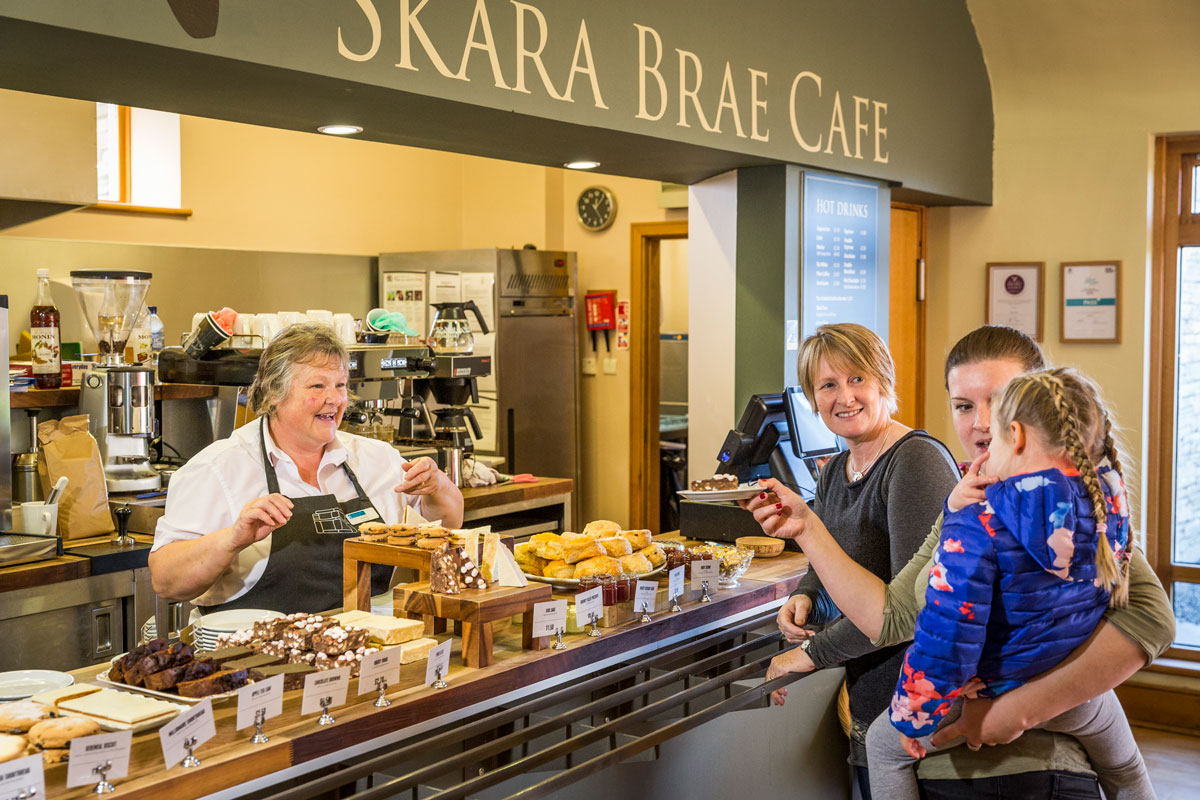
The cakes and bakes at the Skara Brae cafe are polythene free!
Plastic alternatives in our shops
We’re moving to recyclable paper bags for most items in our shops and reducing packaging where we can. Where space allows, you’ll now find our T-Shirts on hangers instead of wrapped in plastic. We’re also looking to reduce labels attached to our products by printing information onto clothing instead.
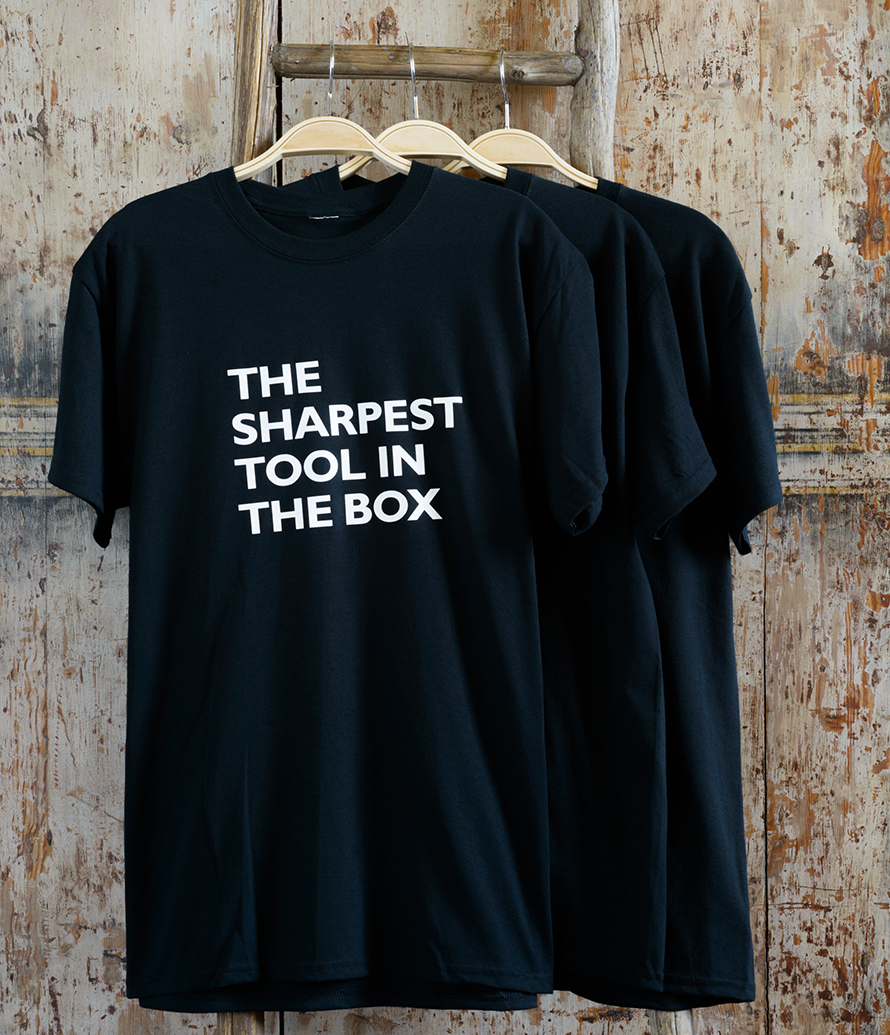
You’ll now find our T-Shirts on hangers instead of wrapped in plastic!
We’re also making sure your souvenirs arrive safely to our shops and are plastic-free. In 2018 we reduced the amount of plastic packaging we use by 14% from 2017 levels.
Top Tip: Sending a package? Why not make your own packaging material? We’re using a cardboard shredder in our warehouse to shred old worn-out boxes. That means we can replace bubble wrap!
Water bottle refills made easy
In July 2017 we partnered with a campaign called Refill in a bid to help tackle plastic pollution and promote healthy hydration. Our visitors can now ask our staff to fill up their water bottles for free at a number of our sites. 41 of our sites are now on the scheme.
Top Tip: To find out where you can refill your water bottle for free, download the Refill app, or look out for the logo in our shop windows. We want to make it easy for our visitors to refill their bottles on the go.
A plastic-free spec for the Engine Shed
The Engine Shed, our dedicated conservation centre, opened in 2017 after a full-scale restoration and development.
The design for the space was led by a sustainability matrix which focused on using natural and traditional materials. This has led to us using alternatives to plastic for many of the building’s features.
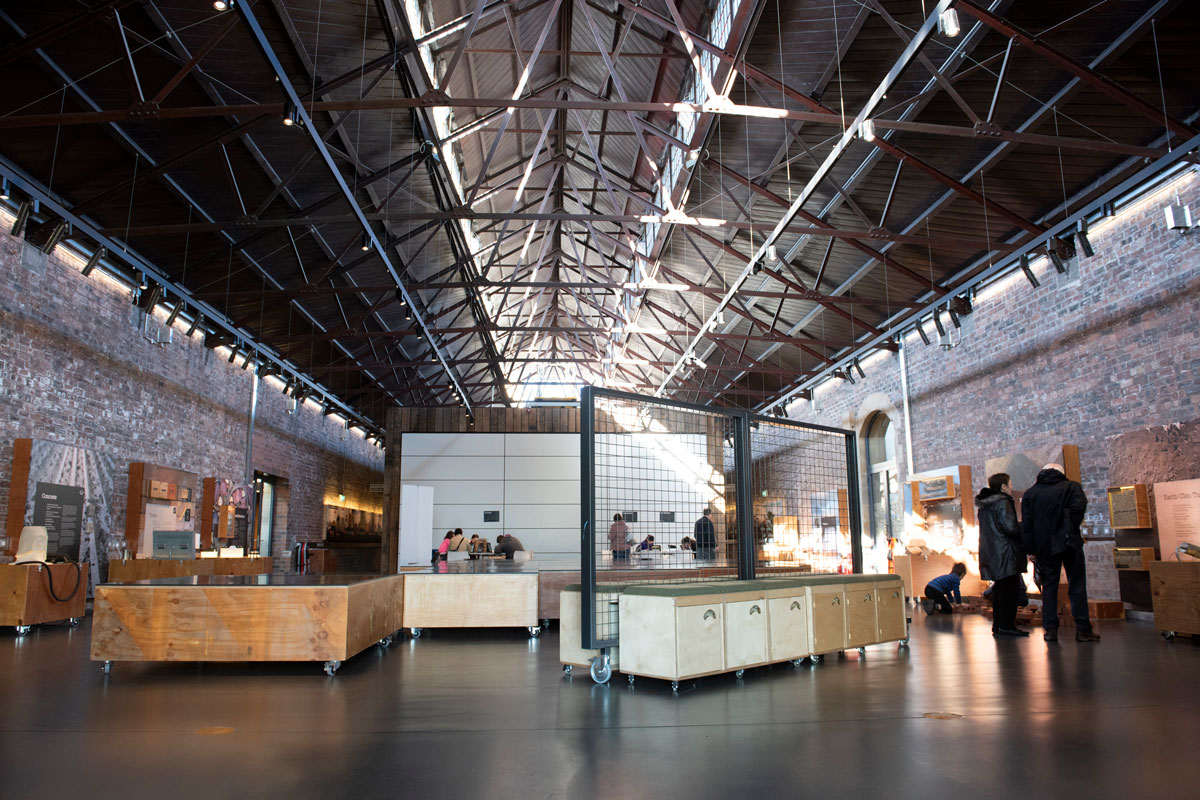
The Engine Shed was designed with a focus on using natural and traditional materials.
For example:
- Our window frames are aluminium
- The signage makes use of cast aluminium
- Doors are all timber and feature bronze handles
- We reused timber scaffolding planks for our furniture
To find out more about the work we’re doing to reduce our environmental impact, see our HES Carbon Management Plan and our Sustainability Reports. Our HES Litter Prevention Action Plan sets out how we are contributing towards a litter free Scotland.

